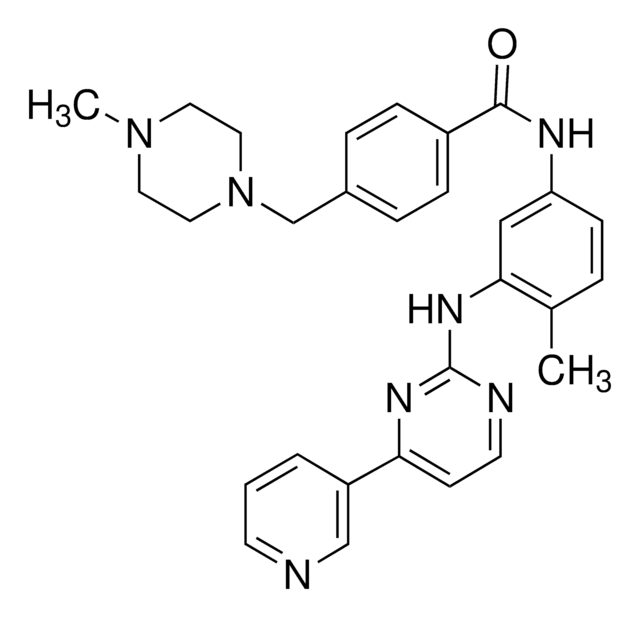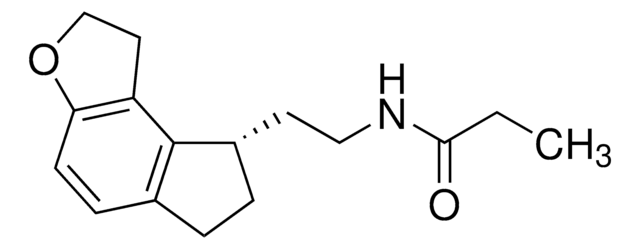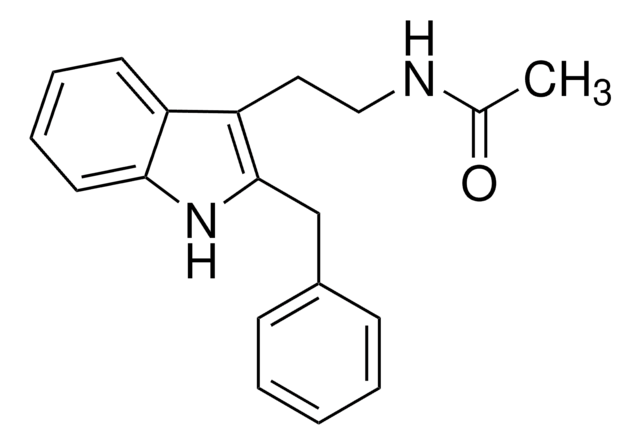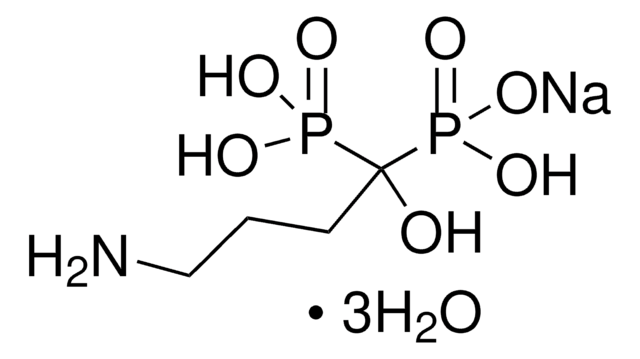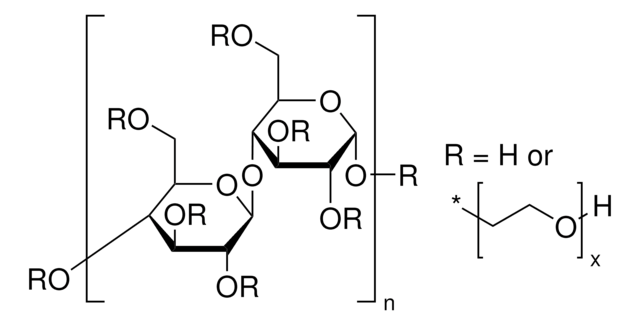A1362
Agomelatine
≥98% (HPLC)
Synonym(s):
N-[2-(7-Methoxy-1-naphthalenyl)ethyl]-acetamide, S-20098
About This Item
Recommended Products
Quality Level
Assay
≥98% (HPLC)
form
powder
color
white to off-white
solubility
DMSO: >50 mg/mL
originator
Servier
storage temp.
2-8°C
SMILES string
COc1ccc2cccc(CCNC(C)=O)c2c1
InChI
1S/C15H17NO2/c1-11(17)16-9-8-13-5-3-4-12-6-7-14(18-2)10-15(12)13/h3-7,10H,8-9H2,1-2H3,(H,16,17)
InChI key
YJYPHIXNFHFHND-UHFFFAOYSA-N
Gene Information
human ... HTR2C(3358) , MTNR1A(4543) , MTNR1B(4544)
Application
- to study its effects on adult neurogenesis and hippocampus apoptosis using the stress-induced depression model of rats
- to explore its effects on tau protein phosphorylation and to study its neuroprotective mechanism
- to study its effects on intracellular calcium ([Ca2+]i) signaling in peripheral neurons of rat dorsal root ganglion (DRG) neurons
Biochem/physiol Actions
Features and Benefits
Signal Word
Warning
Hazard Statements
Precautionary Statements
Hazard Classifications
Aquatic Acute 1 - Aquatic Chronic 1
Storage Class Code
11 - Combustible Solids
WGK
WGK 3
Flash Point(F)
Not applicable
Flash Point(C)
Not applicable
Certificates of Analysis (COA)
Search for Certificates of Analysis (COA) by entering the products Lot/Batch Number. Lot and Batch Numbers can be found on a product’s label following the words ‘Lot’ or ‘Batch’.
Already Own This Product?
Find documentation for the products that you have recently purchased in the Document Library.
Customers Also Viewed
Our team of scientists has experience in all areas of research including Life Science, Material Science, Chemical Synthesis, Chromatography, Analytical and many others.
Contact Technical Service


